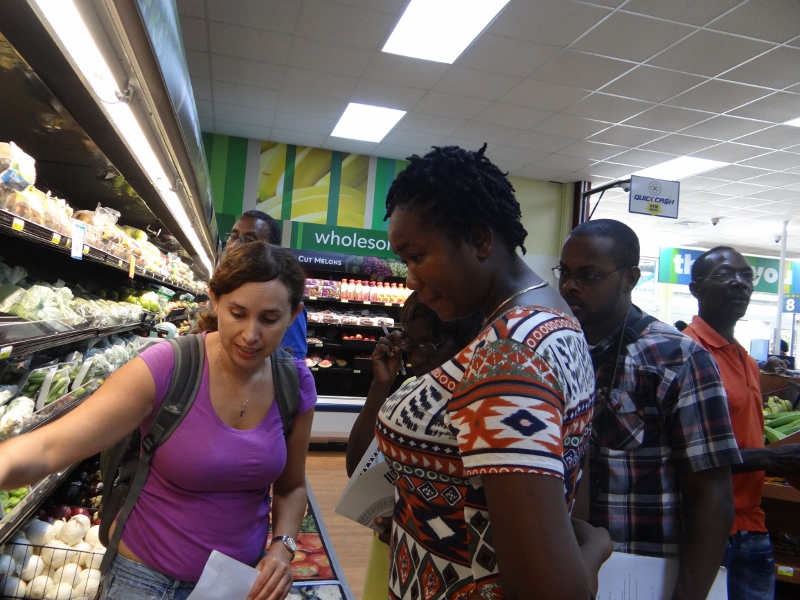An internship training workshop built capacity to support improvement planning of producer groups and associations in the Caribbean.

Castries, St. Lucia. Members of the Belle Vue Farmers’ Cooperative and technicians from the Inter-American Institute for Cooperation on Agriculture (IICA) were trained in developing associative internships aimed at building capacity for improvement planning in agricultural producer organizations in three key operational areas: socio-organizational, value-adding and access to markets.
The event was a train-the-trainer session, and introduced the host producer groups and IICA specialists to the concept for assessment of strengths and weaknesses and the development of improvement plans to address the prioritized weaknesses.
The training focused on supporting peer-to-peer learning as an approach to building the capacity of producer groups, as well as increasing the likelihood of adoption of recommended solutions.
“This intervention is important to building IICA’s capabilities to work in a meaningful way with its partner producer groups and associations to build good governance structures that are at the center of making them more profitable and sustainable”, stated John King, IICA’s Representative in the Eastern Caribbean States.
Trainees included the General Manager and Projects Manager of the Belle Vue Farmers’ Cooperative Society Limited, two of their members and mentees from partner organizations, and IICA specialists from Jamaica, Suriname, Trinidad and Tobago and Saint Lucia.
The workshop format revolved around country presentations on strengths and weaknesses of producer groups in the countries represented, group discussions to specify the causes of the key weaknesses and options for remedying them, as well as field visits to observe and learn more about the operational processes and strengths of the Cooperative that can help technicians in their work with producer groups in their own territories.
“We hope to use this methodology to develop a structured, long-term programme for strengthening the producer groups that IICA works with in Saint Lucia. Peer-to-peer learning is an attractive format for doing so and also allows the groups to build rewarding relationships with each other”, added Brent Theophile, IICA National Specialist in Saint Lucia.
More information:











